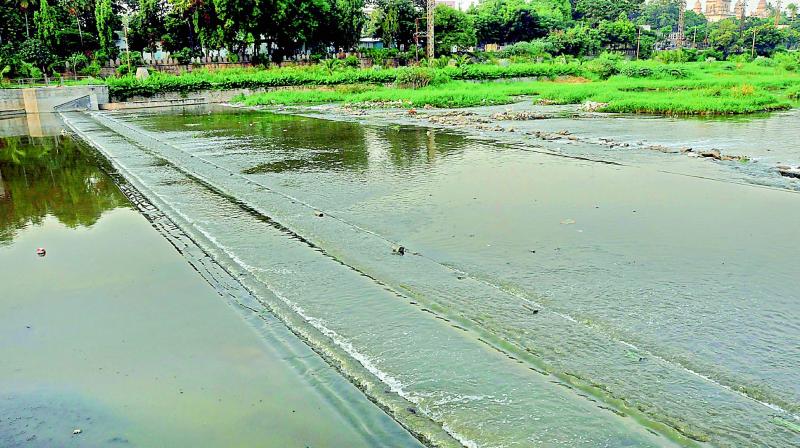Musi, the River Thames of India, turns deadly

Hyderabad: The Central Pollution Control Board (CPCB) has listed the Musi river as being among the most polluted rivers in the country, and says its waters are dangerous to use.
The Musi Riverfront, which was developed on the lines of the River Thames in London during the Nizam era, is currently a dumping ground for refuse due to lack of monitoring and negligence of the municipal and urban development authorities.
The Nizam had built retaining walls between Puranapul and Chaderghat Bridge to control the flooding of the Musi. The study of the pollution of rivers in the country showed a dangerous concentration of antibiotics waste in the Musi River — 1,000 times higher than found in rivers in developed countries. About 12 lakh metric tonnes of waste material has also been dumped in the river.
Dr Narasimha Reddy Donthi, an independent policy expert who had moved the National Green Tribunal seeking protection of the Musi River along with Dr Tudi Indrasena Reddy, a chemical engineer, said that due to lack of prevention measures, waste material is being dumped in Chaderghat, Wahednagar, Durganagar, Chaderghat bridge, Shivajinagar, behind Darbar Maisamma temple, Teegalaguda and Moosarambagh, Jiyaguda Kabela, Nagole bridge and Devendernagar and Parvathpur.
Mr Donthi said that thanks to the indolence of government authorities, building debris is being dumped in the river. Roads, houses, and a parking lot have come up in the river bed abutting the Hyderabad Metro Rail station at Chaderghat.
He said that in 1999, the state government had approved the ‘Genome Valley’ project, which led to more than 100 biotech companies springing up on the outskirts of the city and these companies have been violating pollution control rules and releasing untreated effluents directly into Hyderabad’s water bodies, from the Musi river to the Hussainsagar. The state pollution control board has itself admitted that the companies do this at night to avoid detection, but have done nothing to stop it.
According to Dr Tudi Reddy, the construction of the Outer Ring Road blocked many canals, streams and water flow avenues which were part of the catchment of the river Musi, further harming the river.
Dr Indrasena Reddy, who is convenor of Save Rivers said that the construction of the Metro station, development corridors, and sky roads for 40 km by the Telangana state authorities inside and on the floodplain of the Musi is clearly aimed at regulation, diversion and restriction of the flow of the river.
Pollution resulting from linking of sewer lines and industrial drains has also caused the death of the Musi in the city of Hyderabad. Villagers on the outskirts of Hyderabad use the polluted Musi water for agriculture and animals consume the polluted water, which means the pollution has entered the food chain.
Masterplan doesn’t include riverbed
The Hyderabad Metropolitan Development Authority had developed a Master Plan in 2011, which was subsequently approved and implemented, but it did not include the river zone, river conservation zone and river basin, says Narasimha Reddy who is involved in the protection of the Musi river.
He said the plan will have a negative impact on the Musi, land use classification, and basin contours as it covers more than 800 villages in 35 mandals in four districts (all falling under Musi river basin), and livelihoods of more than five lakh families.
Sravan Kumar, an advocate who is appearing in a case seeking protection for the Musi River before the National Green Tribunal, says that there must be complete prohibition of any kind of construction, whether temporary or permanent in the floodplain or riverbed of the River Musi or its tributaries and various water bodies in and around Hyderabad.
He said that the Environment (Protection) Act and GO No 111 dated March 8, 1996 do not permit constructions in water bodies, river, flood plain, and massive constructions, but yet there has been building in the catchment of the Musi.
It is abundantly clear that the construction of a Metro rail station, bus station, public and private structures in the riverbed and floodplain of the River Musi are illegal, Mr Kumar said.
He said that the action of the authorities in allowing construction activity, dumping of debris, and allowing sewage to be discharged into the river are a gross violation of the Environment (Protection) Act, 1986, and the Water (Prevention and Control of Pollution) Act 1974.

